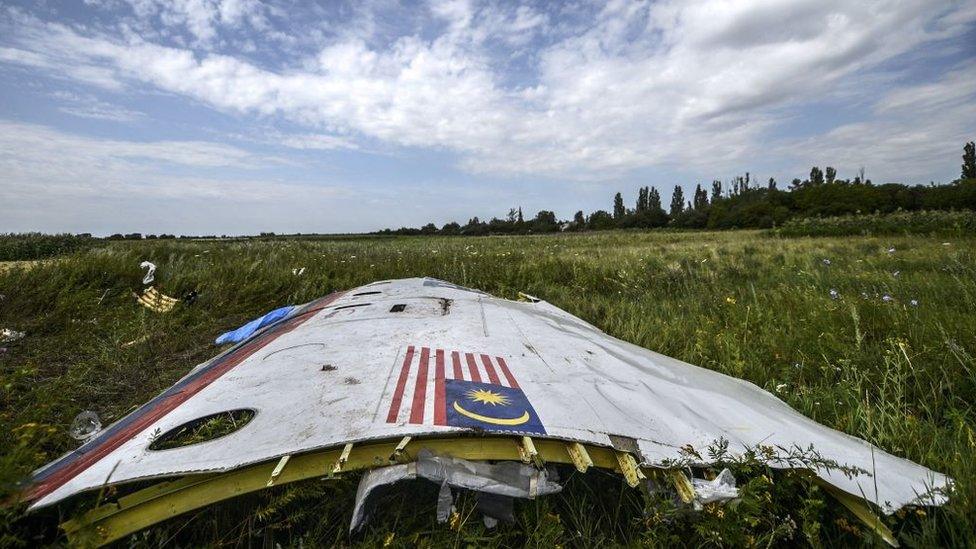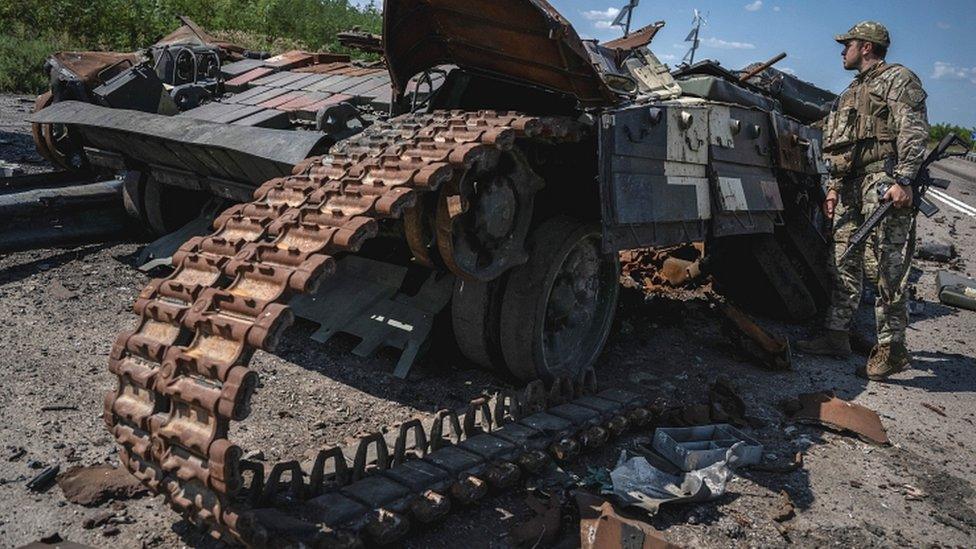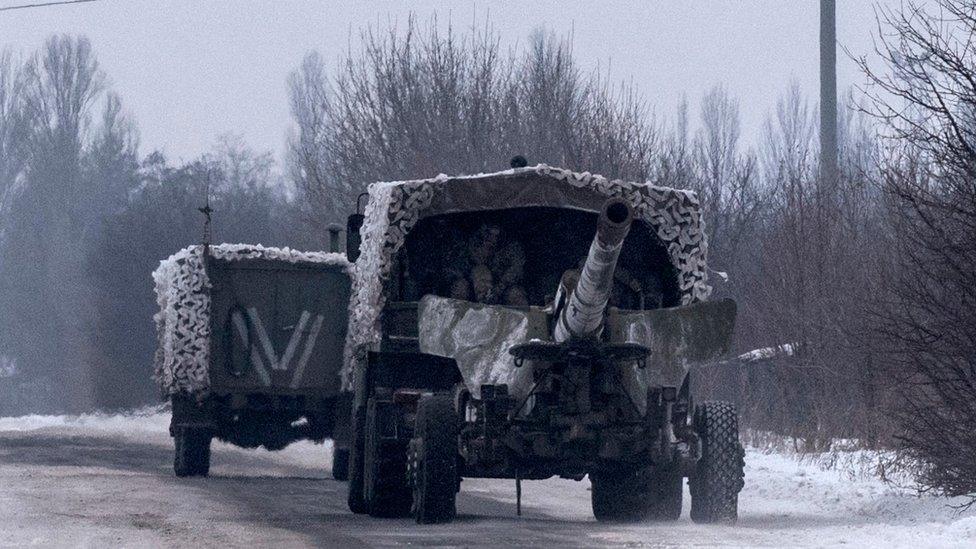Russia Ukraine war: ICJ finds Moscow violated terrorism and anti-discrimination treaties
- Published

A piece of the wreckage of Flight MH17 in eastern Ukraine, July 2014
Russia violated elements of terrorism and anti-discrimination treaties, the UN's top court has ruled.
However, in allegations brought to the International Court of Justice (ICJ) by Ukraine, judges declined to rule on allegations Russia funded fighters involved in downing Flight MH17.
They also declined to order reparations requested by Kyiv.
The cases relate to the conflict which erupted in Ukraine in 2014 and were filed in 2017.
Meeting in The Hague, the ICJ found that under the anti-terrorism treaty, only allegations that related to the funding of terrorism could be considered, not the alleged supply of weapons and specifically the surface-to-air rocket used to shoot passenger jet MH17 out of the sky.
As a result, judges declined to rule specifically on allegations Russia had funded fighters involved in downing the airliner.
Malaysia Airlines Flight MH17 was shot down over eastern Ukraine on 17 July 2014, killing all 298 people on board.
In 2022, a Dutch court ruled that a Russian-controlled group had downed the plane, finding two Russians and one Ukrainian citizen guilty of a war crime.
Hans de Borst, whose 17-year-old daughter Elsemiek was on board flight MH17, told the BBC it was "painful" to see Russia argue it was in the right.
During the hearing, the ICJ found that Russia had violated the 1999 International Convention for the Suppression of the Financing of Terrorism by failing to investigate people who had allegedly funded pro-Russian separatist groups in eastern Ukraine.
The judges ordered Russia to investigate plausible allegations of terrorism funding in Ukraine under the treaty.
The ICJ also said limiting school classes in the Ukrainian language in Crimea, which was illegally annexed by Russia in March 2014, was a violation of the 1969 International Convention on the Elimination of Racial Discrimination.
But the court dismissed other complaints brought by Ukraine. These included that Moscow was trying to erase the culture of the ethnic Tatar minority in Crimea, including by banning the Mejlis, a body representing Crimean Tatars.
The ruling said Ukraine had not proven that the ban on the Mejlis was an example of racial discrimination.
However, the ICJ had already ordered Russia to lift the ban on the body in 2017, a ruling ignored by Moscow. The court again found Russia in breach of this order. It also said Russia had violated a previous ruling to avoid making relations with Ukraine worse by launching a massive war against its neighbour.
One of the leaders of the Ukrainian legal team, Anton Korynevych, called Wednesday's ruling "important" because it found that Russia had violated international law, "in particular both conventions under which we made our application".
Most of the seats on the Russian side were empty. Only a diplomat and a member of the Russian legal team turned up right before the ruling was announced.
In contrast, the Ukrainian side was full.
This week, the court will issue another ruling on a case brought by Ukraine, accusing Russia of wrongly using the 1948 Genocide Convention to justify its full-scale invasion in 2022.
ICJ rulings are legally binding but cannot be enforced by the court itself.
- Published18 September 2023

- Published6 March 2017
